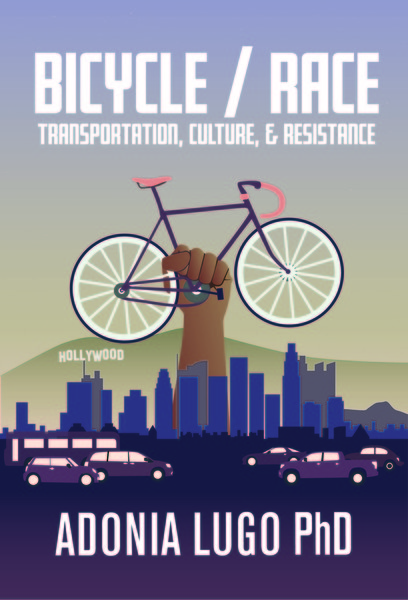In the summer of 2013, I was living in SE Portland on the corner of 32nd and Stark, a popular street for biking. One night a friend and I were inside watching a movie when a sickening crunch outside grabbed our attention. I felt a surge of panic and looked fearfully out of the window. It turned out we had heard a car colliding with a person on a bicycle. The bicyclist lay on the ground in the street a few feet from my building, his blood splattered over the broken windshield of the truck. Other people had already gathered, so there was nothing I could do to help. After an ambulance arrived and carried him away his blood left a stain on the street that remained for as long as I lived there.
Last night around sunset, I had just returned to my home in Northeast D.C. after biking to the grocery store. As I pulled into my alley, I saw some kids playing around, one of them lying on the ground. I thought to myself, that's not a good place to lie down, but I didn't say anything. I feel like enough of an outsider in this neighborhood without running around and telling kids how I think they should behave.
It was warm out, with just a touch of humidity to foreshadow summer. I opened the windows in my second floor apartment, and the kids I'd seen in the alley were hooting as they played. I could hear the sound of cars passing a little too quickly down our quiet street, as they often do. This is a town where people drive as fast as possible, I guess it makes them feel powerful. This is a town where feeling powerful is important.
And then the sounds outside changed. A screech and a thud punctuated the cries of fun and turned them into cries of fear. I didn't want to believe that it was happening again. The surge of panic returned, and I started saying "oh God no" over and over as I made my way to the bathroom window. I looked out and saw people gathered around someone lying in the gutter. It was one of the kids who'd been playing in the alley. A white sedan was parked in the middle of the road with the driver's door open. "Don't touch him, don't touch him!" an adult barked at the kids surrounding their friend. I saw the prone figure move his arms, apparently conscious, thank God.
I couldn't do anything to help, but I felt like I had to go wait outside until the ambulance arrived. People came from surrounding blocks to join the quietly waiting circle around the boy. I stood in my backyard, apart from them, remaining an outsider to this neighborhood where I represent the cure D.C. has chosen for poverty: rising rents.
I want to be part of a street safety conversation where this little boy matters as a whole person. What are the stresses his parents face as they try to survive in this city? Is he going to be scolded for darting into the street, while the lady who hit him with her car maintains her sense that driving is the best way to get around? What do these street traumas mean for marginalized communities that know all too well the powerlessness of pain?
I don't want to witness any more hurt in the road, but far too much of the "safety" work I see happening would cut off lives beyond the street. The insecurity that a Black family in D.C. faces goes far beyond the danger of a soccer ball rolling in front of a car. It's time to start bearing witness to the other ways in which communities are drowning. We are not going to break the back on driving by villainizing drivers, when driving matters so much to economic and social status.
Who cares about that little boy more: me, the bike anthropologist looking out from the second story window, or the woman who hit him who waited by his side?

